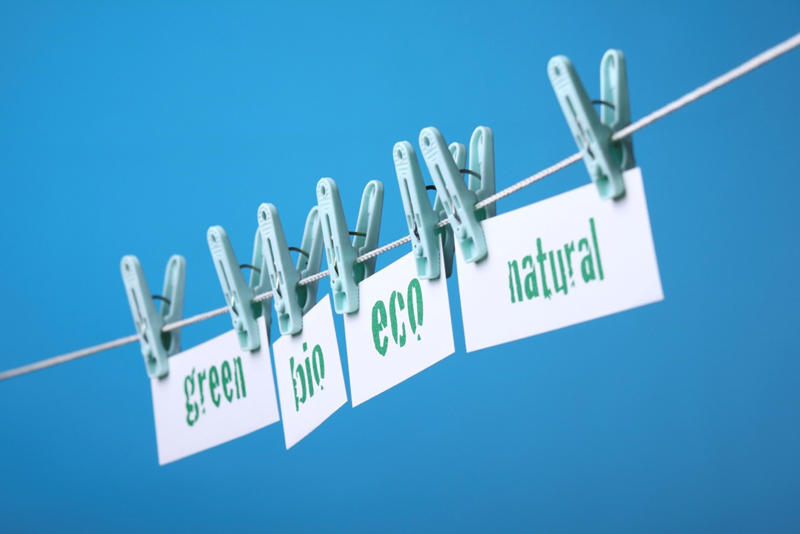Greenwashing: The Misleading Marketing of Sustainable Products and Initiatives
1 MAR 2023 | by Vinod Tavintharan

“Eco-friendly!”
“Non-toxic!”
“100% natural!”
Greenwashing is an unethical marketing technique used by corporations to brand their products as environmentally friendly to gain and retain customers. It involves deceptive advertising, making bold and empty promises, and covering up environmentally harmful practices with small and insignificant solutions.
With global growing awareness of and concern for the pressing nature of our climate problem, consumer desires evolve, and businesses rush to meet increasing demand for sustainable goods and services by creating the appearance that they are catalysts for a greener future. As Singapore adopts an accelerated national goal of Net-Zero 2050, businesses are also moving at breakneck speed toward being compliant to continuously changing sustainability laws and policies. Even companies with the best of intentions may end up greenwashing unintentionally by being unclear in representing their sustainability initiatives. Unintentional greenwashing may occur as a result of inadequate environmental research or understanding, a misdirected focus on immediate marketing profits rather than sincere sustainability efforts, or both. Companies should do detailed analyses of their environmental effect and be transparent and specific about their attempts to reduce it in order to avoid unintended greenwashing.
Alarming Issues

-
Some may argue that greenwashing is not all bad. After all, even if companies are exaggerating their sustainability efforts and claims, the fact that they are taking small steps towards a greener future should be praiseworthy. However, greenwashing’s harmful consequences begs for it to be addressed from the get-go, as it impacts on our climate by allowing harmful practices to carry on under the guise of being ‘green’.
-
Finding out that the ‘green’ endeavours you invested in were for-profit scams goes beyond causing public anger. Such malpractice leaves consumers with a soured impression of the whole global push towards a sustainable future. Climate change advocacy has become suspicious as a result, and consumers may end up viewing future attempts for business-driven green agenda as just more hacks to get their money.
-
Speaking of consumer trust, greenwashing result not only in loss of credibility but also have financial repercussions for organisations - consumers who feel cheated will distance themselves from the company’s products and services. In 2022, the Task Force on Climate-Related Financial Disclosures (TCFD) listed greenwashing as one of six enterprise risk categories with regards to sustainable finance products.
-
Lastly, greenwashing campaigns allow corporations to shirk responsibility for the part they play in harming the environment by shifting the blame instead on the individual. This is done by creating the narrative through advertisements that the burden is on the consumer to make the ethical and ‘green’ purchase, rather than on the larger organisation to change its harmful practices. This leads to a feeling of helplessness on the individual’s part as large corporations continue harming the environment disproportionally.
Setting Regulations in Place
-
In Singapore, regulations such as the Misrepresentation Act leave companies open to being sued for being misleading, including in their green marketing. The Consumer Protection (Fair Trading) Act (CPFTA) protects consumers against unfair, misleading, or deceptive business practices, the making of bogus claims, and gaining advantages. Aggrieved consumers may lodge a complaint with the Competition and Consumer Commission of Singapore (CCCS). The Singapore Code of Advertising Practice requires all advertisements to be legal, decent, honest, and truthful. The regulatory organizations in charge of enforcing these rules and regulations are the National Environment Agency (NEA) and the Advertising Standards Authority of Singapore (ASAS). Companies that are found to have made false or deceptive environmental claims under the CPFTA may be subject to fines of up to SGD $100,000 or even up to two years in prison.
-
2) As of January 1, 2022, all listed firms on the Singapore Exchange ("SGX") must comply with new climate disclosure regulations. All issuers must include climate reporting in their sustainability reports on a "comply or explain" basis. To help issuers evaluate their ESG compliance on a consistent manner, SGX has produced 27 basic indicators related to ESG concerns.
An Opposite Effect – Greenhushing
In a bid to avoid the negative image that comes from being exposed to inaccurate sustainability claims, companies may resort to ‘Greenhushing’, which refers to going completely silent about their emissions. While not as unethical as Greenwashing, Greenhushing results in a loss of opportunity to create meaningful transformation and gain consumer favour.
Stepping Away from the Pitfalls of Greenwashing
A growing concern over the practice of greenwashing ESG investment goods to attract capital have led to some mitigation measures. Below are some guidelines being implementing by certain groups to limit its spread:
-
Empowered Workforce
By attending sustainability workshops for businesses, employees become equipped to apply green practices in their professional life without sacrificing their business potential. The Singapore Environment Council (SEC) conducts sustainability training for businesses, which provides attendees with knowledge of circularity principles, managing risks, resource resilience and the ability to build sustainability reports.
-
Reasonable Targets
Setting achievable and realistic sustainability goals for your organisation is key in ensuring that the organisation does not overcommit by making promises and claims that it cannot live up to. It is perfectly acceptable to work towards smaller targets and build upon them in the future.
-
Accurate Reporting & Financing
Specific and transparent reporting and presentation of an organisation’s green endeavours are crucial in avoiding public’s misconception. Stay away from vague terms such as “green” or “eco-friendly” unless they can be substantiated with legitimate certification from authorised government bodies of NGOs.
Proper reporting is also invaluable in ensuring that stakeholders feel confident enough to invest in the organisation. On best practices for reporting, organisations should refer to the Financial Institutions Climate-Related Disclosure Document by the Monetary Association of Singapore (MAS). From 2022, banks in Singapore has been required by the MAS to submit to stress tests, which means that banks will need to better understand the climate risks associated with their customers, borrowers, and supply networks. MAS has also developed the Green Finance Industry Taskforce (GFIT) taxonomy for Singapore-based financial institutions.
The three biggest Singaporean banks, DBS, OCBC, and UOB, agreed to cease financing sectors linked to climate change, such as new coal-fired power projects, in accordance with major international banks. This means that companies seen as greenwashing will be unable to receive funding, and they must think twice about their true environmental impact.
-
Technology and Initiatives Against Greenwashing
Singapore recently unveiled the National AI Programme in Finance, a new public artificial intelligence (AI) initiative that comprises the industry-wide AI platform, NovA!. NovA! intends to assist financial institutions in more effectively evaluating businesses’ environmental impacts and recognizing new environmental hazards. Also, MAS’s Project Greenprint aims to use data and technology to marshal financing for ESG projects. Mandatory climate-related financial disclosures for companies listed in Singapore are all part of this sustainable investing and financing blueprint.
Additionally, three new initiatives to stop greenwashing were unveiled by the International Financial Reporting Standards (IFRS) Foundation Trustees:
-
Establish an International Sustainability Standards Board (ISSB) to develop excellent sustainability disclosure standards for investors;
-
Merge the sustainability disclosure standards of the Value Reporting Foundation and the Climate Disclosure Standards Board;
-
Publicise sample general and climate disclosure guidelines.
-
New Standards
To protect investors from greenwashing, new standards are put in place by advisory organisations such as the CFA Institute (based in the US), which has implemented a global ESG disclosure standard to depict how investment products considers ESG issues. Having clear standards to meet is a valuable way of ensuring that all organisations are working together to meet global sustainability goals, restoring customer confidence in the green movement.
Another example would be The International Organization of Securities Commissions (IOSCO) Board (based in Spain), which issued a set of proposals to control ESG-related products and to educate investors and the financial community about sustainability.
Sidebar - Environmental Certifications and Carbon Management Programme by SEC
The Singapore Environment Council (SEC) runs certification programmes that guide businesses to practice responsible consumption and a low-carbon lifestyle. SEC’s Eco-Certification programme requires companies to track their energy, water and waste consumption and management data over a 12-month period to ensure the accuracy of the results.
The SEC also runs the ESG training programme – Putting Sustainability into Practice for Businesses – to empower staff with environmental sustainability best practice knowledge. These sessions are usually attended by the C-suite and senior management from leading organisations and associations in Singapore. Through thematic presentations, interactive environment trails, and seminars, programmes such as these encourage people from all walks of life, students, and businesses to be more environmentally responsible.
Organisations which have completed all three of eco-certification, sustainability training and SEC’s awards and outreach programs will be awarded with the coveted GreenDNA certificate. Such thorough certification process gives organisations credibility in the eyes of consumers and investors and takes out the stress of worrying about loopholes in your processes. Additionally, it leads to cost savings for organisations by reducing their resource use.
The Singapore Environment Council (SEC) was established in 1995 as an independently managed, non-profit, non-governmental organisation (NGO). We are the only recognised member of the Global Ecolabelling Network (GEN) in Singapore. The GEN is a non-profit association of leading eco labelling organisation worldwide. In 2018, SEC was granted United Nations Environment Programme (UNEP) accredited environmental NGO status. In line with the national targets outlined in the SG Green Plan 2030, SEC focuses on raising public awareness of sustainability issues and fosters capability and capacity building through Public Private People (3Ps) partnerships. As a not-for-profit, non-governmental organisation (NGO), SEC is approved under the Institution of Public Character (IPC) which extends tax exemption to donors. Together with other stakeholders, we are striving for Singapore’s accelerated net zero 2050 climate action plans. If you would like to know more on how we can help your organisation in your green journey, email us at info@sec.org.sg